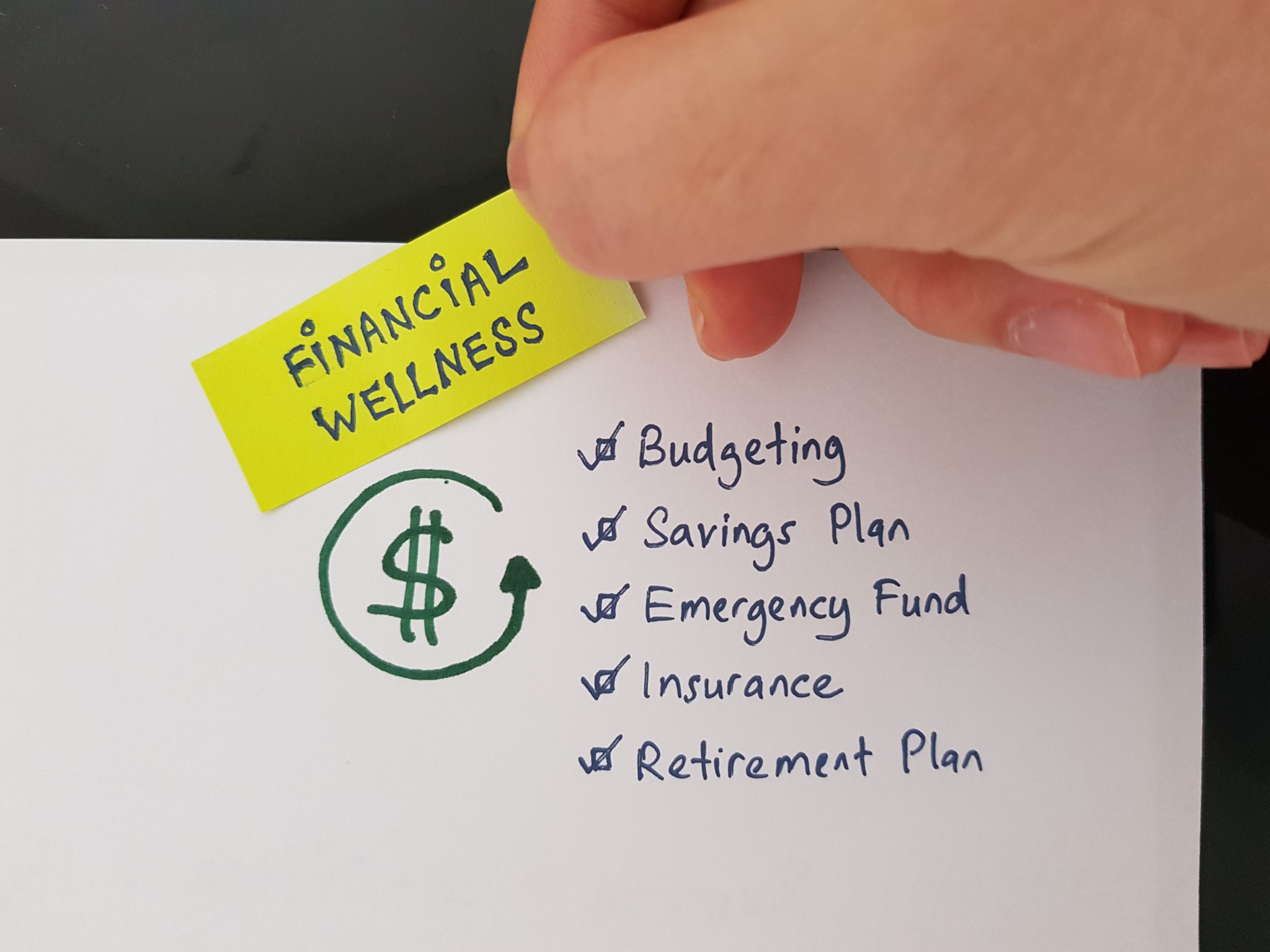Finance & Career

Financial wellness refers to financial preparedness. Financial wellness is a person’s ability to manage money to prevent financial struggles. It requires knowing (knowledge) and doing (skills). On the other hand, financial well-being refers to “how much your financial situation and money choices provide you with security and freedom of choice,” according to the Consumer Financial Protection Bureau. Financial well-being is also associated with physical, mental, and emotional health. When struggling with financial problems, we are more likely to be stressed or shamed due to money worries, including holiday debt. Worrying about money can cause mental health issues, such as anxiety or depression.
Financial Well-Being
Consider these solutions to improve personal financial well-being.
Live Within Your Means
When the amount of money spent each month is less than or equal to the amount of money made each month, one is “living within their means.” To live within an individual’s means will require people to avoid the following:
- “Keeping up with the Joneses” or making purchases based on what other people purchased or obtained
- Satisfying wants and forgoing needs
- Spending excessively
Create and Follow a Spending Plan
As with any plan, a spending plan (budget) is used to achieve a specific objective. The objective of the spending plan is to gain control of spending habits. Don’t just develop a spending plan for the sake of developing it. Follow the plan.
Manage Your Credit and Debt
Explore ways to reduce or eliminate debt. Consider using debt elimination software or learn about the advantages and disadvantages of applying different strategies to reduce debt. Also, remember to keep credit card debt 30 percent or less of the total credit card limit because debt impacts credit scores.
Plan for the Unexpected
Save for emergencies. Although various types of emergencies will occur throughout the year, start thinking about the possibility of a major emergency such as loss of employment. The amount of money saved each month should be based on total monthly expenses (see spending plan). Although financial decisions are personal, a single individual should try to save enough to cover expenses for at least three months and a family enough to cover six months of expenses.
Change Your Behavior
Talking about having financial security and financial freedom will not increase financial well-being. Resolve to change spending behavior and start doing something to secure the financial future.
More Information
Remember, it isn’t necessary to be a financial expert to improve financial well-being. It takes desire and commitment. Visit www.aces.edu for more financial management tips.

